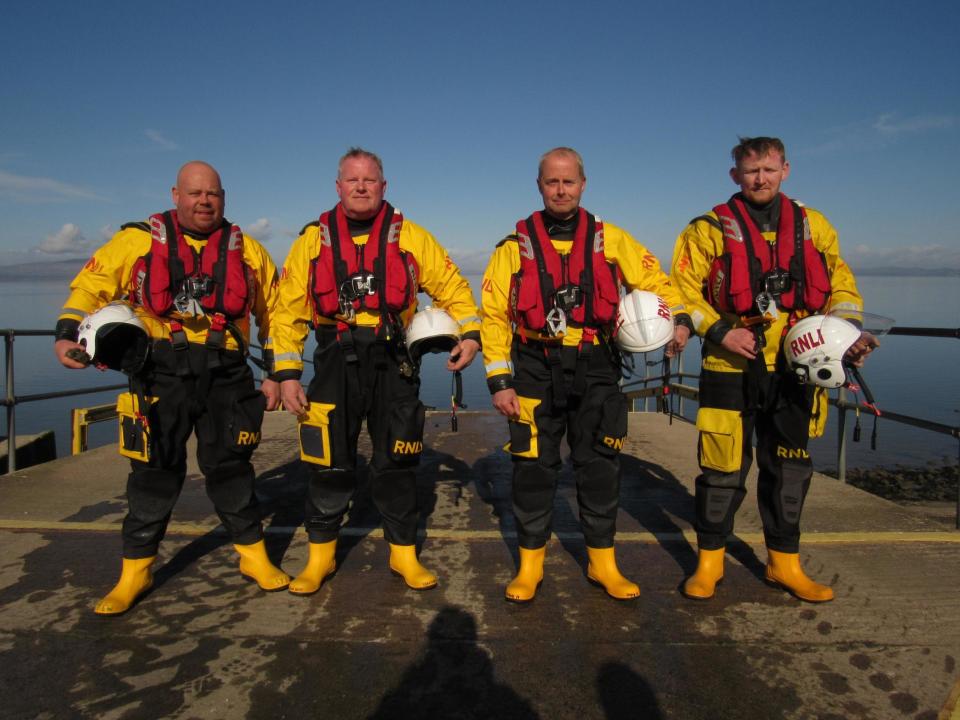Saving Lives at Sea (BBC2) TV review: A somewhat propagandistic portrayal of a very worthy cause

Unlike the boats that so often run adrift, capsize or otherwise end up in trouble around our shores, the Royal National Lifeboat Institution never loses its balance, or at least according to Saving Lives at Sea.
However, I’m not sure that the BBC’s documentary was quite so well balanced and skilfully piloted as the RNLI’s craft. This is, by the way, no disrespect to the RNLI which, I repeat does amazing work in dangerous circumstances – and without its brave life lifeboatmen and lifeboatwomen getting a penny for putting their own lives on the line. They’re all heroic, by definition. Got that? Good.
So back to the show. One thing about it is that it contained, so far as I can see, no examples of actual failure. In all the dramatic cases we followed – fishing boat becalmed, kayakers suffering from hypothermia, woman in car on beach inundated with water, perched on the roof – there was, happily, a happy ending.
But surely the RNLI’s work also contains its share of the more tragic cases? Those hopeless situations where the boats arrive, though no one’s fault, just too late, even though every single member of the crew – a phrase that came up repeatedly – knows that “every second counts”. Or maybe just the odd episode of human error. But no – at least not in this first episode of 10.
If it were not such a worthy cause, I might resent the fact that at times the documentary veered towards the propagandistic. Indeed the programme title itself – Saving Lives at Sea – is the RNLI’s own motto. Sometimes I felt as though I was watching the result of a pact, whereby the RNLI allowed the filmmakers to use their dramatic headcam footage of sea rescues in return for a fairly sympathetic show. Maybe, maybe not, but as I say it did feel a bit like that, and, after an hour, all a bit samey. Again – at the risk of repeating myself – this is no disrespect to the people concerned.
I’d also have appreciated some account of how it is that the RNLI is the only vital emergency service that is not in public (ie state) hands. From Cornwall to Anglesey to central London we found brave folk volunteering their services for free, in a way they don’t for the Fire Service or HM Coastguard, say – 5,000 of them in all. Yet, anything that relies on public donations and charity, as the RNLI does, is prone to underfunding when the economy takes a downturn (as we are about to discover again), and, arguably, funding through taxation is more secure and reliable than bring and buy fairs.
On the one hand, we might have heard, the RNLI has been operating in this way since 1824, before we had an organised police force, universal education or an efficient postal service, for example, so it has a longer track record than most of public service in good times and bad. It also – by definition – represents supreme value for money for the Treasury, because it takes no taxpayer money. There’s a debate to be had there, or at least an explanation, but it had fallen overboard.
So as the RNLI sails on towards its bicentenary in 2024, it remains the outstanding institutional representation of the power of altruism – up to and including the ultimate sacrifice. Looked at that way, it would be a shame to mess about with it. As I say, though, I’d have found it more reassuring to see just a few flaws in the way the RNLI operates, because it would be more believable. Not a hatchet job, just a bit more balance in this account, which, lacking it, found itself listing badly. The vessel overloaded with aquatic saints.
(By the way, and feeling a little remorseful about some of the foregoing, your critic immediately visited the RNLI website and made a modest donation. The propaganda worked, after all.)

Catching up with Great British Menu I was seared by some different sensations. Frustration, for starters, because not only did I not know what to do with the bladderwrack, borage and bottarga that were being tossed around, I didn’t even know what they were (always have an iPad as a side dish when viewing is my tip). There was bemusement too, as I found when chef Scott described his perennial excitement whenever he is presented with a “massive warm fish pie”. It’s something many of us enjoy not often enough.
Most of all, though, I experienced wonder. Wonder, that is, both at cooks’ creativity, but also that the producers can spin 45 nightly episodes out of yet another cookery competition show; that’s 22 hours 30 minutes of your life in all watching cooks cook, time you could actually spend cooking. (How many viewers are parked in front of Great British Menu with a takeaway or a microwave meal?)
I wonder, however, when British television will be released from the tyranny of the kitchen. The format had its best years between the reigns of Graham “The Galloping Gourmet” Kerr and the much-missed Keith Floyd – flavoursome but the portions not too large. By now the ingredients no longer seem fresh and the telly cookery banquet finds itself, shall we say, all a bit overdone.

